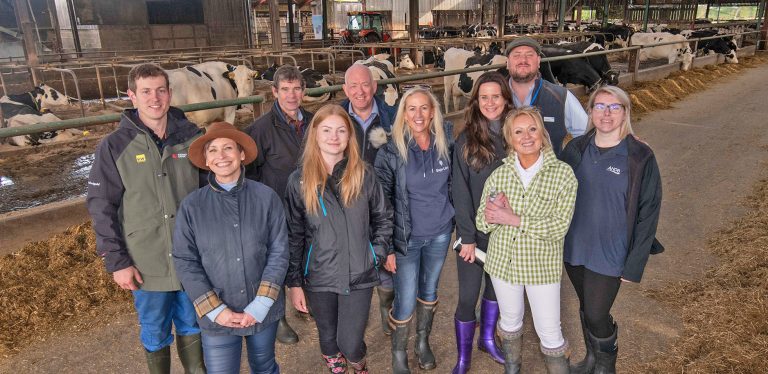Next steps approved for new retirement living scheme in Golcar
Northallerton dairy farm shares details of journey to net zero
Inflation stays stubborn
Housebuilder submits plans for £105m development
Don’t get caught in a scam, HMRC warns self-assessment taxpayers
“Unexpected contacts like these should set alarm bells ringing, so take your time and check HMRC scams advice on GOV.UK, ” she added.
Customers can report any suspicious communications to HMRC:- forward suspicious texts claiming to be from HMRC to 60599
- forward emails to phishing@hmrc.gov.uk.
- report tax scam phone calls to HMRC on GOV.UK.
Yorkshire-based printer invests heavily in factory upgrades and new jobs
London firm moves to Sheffield to benefit from South Yorkshire’s advantages
Yorkshire and the Humber resilient in the face of UK-wide fall in start-ups and rise in insolvency-related activity
With businesses across the UK facing the challenges of continuing high interest rates, Yorkshire and the Humber is remaining stalwart having put in a relatively strong performance in September compared to many other regions, according to the latest research from the UK’s insolvency and restructuring trade body, R3.
The research, which is based on an analysis of data provided by CreditSafe, shows that only two of the 12 regions and nations surveyed saw a rise in the number of new businesses last month. Yorkshire and the Humber had one of the lowest falls since August with a drop of just 1.7% as 4,294 start-ups launched in September. The highest levels of new businesses were in Northern Ireland (up 4.9%) and Wales (up 3%), followed by East Anglia (-1%).
In contrast, all of the other eight regions and nations saw month-on-month falls in new businesses of more than 4%.
In terms of levels of insolvency-related activity (which includes liquidator and administrator appointments and creditors’ meetings), much of the UK saw a rise between August and September 2023.
The greatest increases were seen in Northern Ireland (up 233%); and East Midlands (up 36%); while Yorkshire and the Humber (up 9%) was among four regions and nations with single digit increases. The best performing were the North East with a fall of 25.3%, Scotland (down by 17.6%) and the North West (-11.5%), and three others also saw falls in insolvency-related activity.
“In the midst of the pressure of high interest rates, there’s no doubt that businesses across the UK are feeling financial strain,” says Eleanor Temple, chair of R3 in Yorkshire and a barrister at Kings Chambers in Leeds.
“The combination of pandemic debt, together with higher borrowing costs and falling consumer confidence, is not only leading to increased levels of insolvency-related activity in many regions and nations, but is also having a detrimental effect on the number of would-be entrepreneurs prepared to launch new initiatives.
“While Yorkshire and the Humber appears to be faring relatively well in such a difficult economic environment, after 14 interest rates hikes and with fears that the UK may officially enter recession next year, the worst may not be over.
“In fact, many experts believe that UK interest rates have not yet peaked and may remain high long-term as the Bank of England continues to struggle to control inflation. Businesses would be well-advised to prepare for a challenging winter and seek advice from insolvency experts at the first sign of financial problems.”
Cheers! Drinks industry welcomes lighter touch on labelling
“And at a time when businesses are doing all they can to minimise packaging waste, changes to packaging rules will be good for business, the environment and consumers.”
Feedback from the wine industry showed that certain regulations within the current 400-page rulebook have been stifling innovation and preventing the introduction of more efficient and sustainable practices. Changes will include removing expensive and cumbersome packaging requirements – such as ending the mandatory requirement that certain sparkling wines must have foil caps and mushroom-shaped stoppers. This will reduce unnecessary waste and packaging costs for businesses. Outdated rules around bottle shapes will also be scrapped, freeing up producers to use different shapes. The government will also remove the requirement for imported wines to have an importer address on the label – the Food Business Operator responsible for ensuring all legal requirements are met will still need to be identified on the label, as is the standard requirement for food products. This will create more frictionless trade and reduce administrative burdens. Further reforms will also give producers more freedom to use hybrid varieties of grapes. This will enable growers to choose the variety that works best for them and reduce vine loss due to disease or climate change, while also providing greater choice to consumers.











